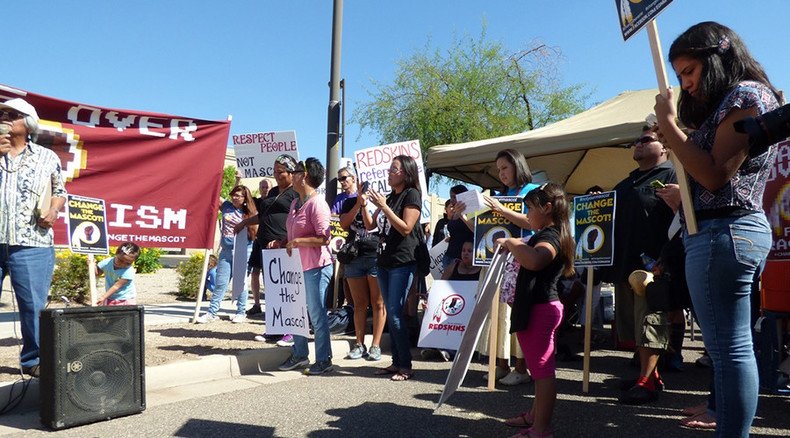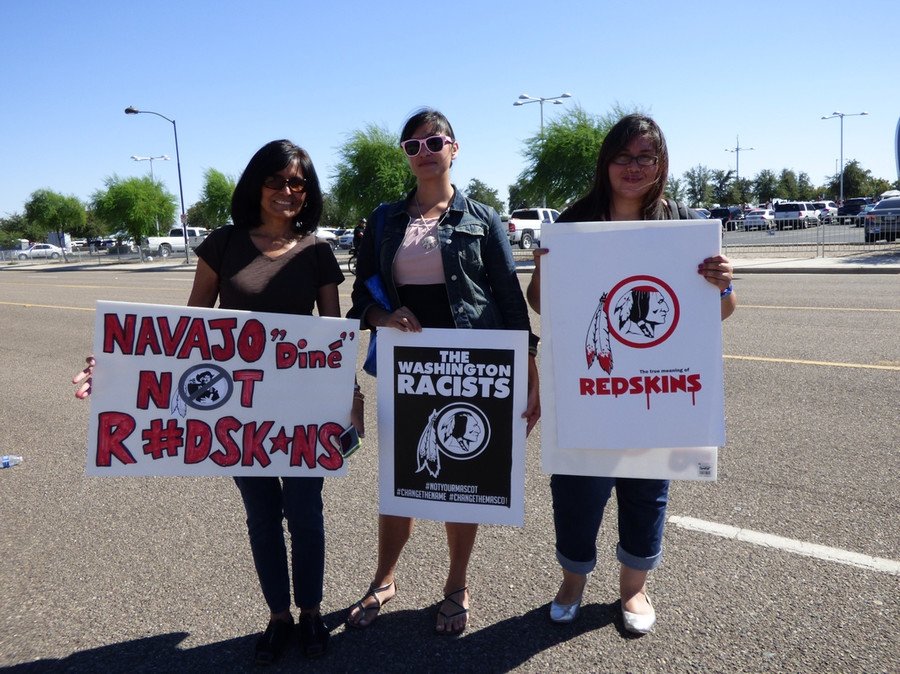'Absurd': Redskins slam Adidas’ drive to eradicate Native American mascots in high school sports

Adidas has no problem making billions off of endorsing major-league teams whose names contain ethnic stereotypes. Yet it has just pledged to pay for high school football’s bid to eradicate racial symbolism. The Redskins say Adidas is employing double standards.
Under the initiative, announced Thursday, Adidas would provide free design services to those schools seeking to remove “potentially harmful Native American imagery or symbolism” - including mascots, team names, logos and so on. The German company is even eager to provide financial support to ensure the cost of changing is not prohibitive, The Washington Post reports.
Some 2,000 high schools still use mascots and monikers that “cause concern for many tribal communities,” the company said, announcing it will be a founding member of a coalition to review the issue of Native American imagery in sports.
President Barack Obama called the idea a “smart, creative approach,” given that “we can’t get states to pass laws to prohibit these mascots.”
But the Washington Redskins were not so happy. According to a statement from Maury Lane, a spokesperson, “The hypocrisy of changing names at the high school level of play and continuing to profit off of professional like-named teams is absurd.”
“Adidas make hundreds of millions of dollars selling uniforms to teams like the Chicago Blackhawks and the Golden State Warriors, while profiting off sales of fan apparel for the Cleveland Indians, Florida State Seminoles, Atlanta Braves and many other like-named teams.”
There also seems to be the implication that Adidas would go after major-league teams next, but Adidas has been quick to deny this.
“It’s important to remember (Thursday's) discussion is a voluntary effort and only about high schools,” spokesman Michael Ehrlich told The Washington Post in an email.
“We are not mandating a change. We are committed to continuing a dialogue to look at the issue of Native images in sports and work to find solutions. Ultimately, it’s the leagues, teams, athletes, coaches and fans who decide what changes they want to make. And if they want to make a change and we have the resources to help, then we want to help.”

Meanwhile, the case of Blackhorse vs Pro-Football has been picking up pace. Over in Glendale, Arizona, in mid-October, scores of people, both Native and others, showed up at the University of Phoenix Stadium to stand against the NFL’s continued use of racist symbolism and naming.
‘If you want more respect, teach Native American history properly’
Elsa Johnson of the Navajo nation, one of the organizers, told RT she believes Adidas has made a move in the right direction.
“I think if we can get the high school and the younger folks – who knows, they may be the ones making that decision one day, saying ‘You know what, we’re going to get rid of this name altogether, we’re going to get rid of all racist names in sports,’ and I hope that happens,” Johnson said.
But her view is also that painful and misguided stereotypes about all things Native American will persist, if Native American history is not taught properly in schools.
“I think that’s a good step in the right direction, and I know that the NFL and other professional leagues still have some names; but I think it’s good to also really start with the youth… because what you teach them typically stays with them for life.”
“Native American history isn’t taught in schools. History is taught from the oppressor’s viewpoint,” she said. “If you go to [any level] school, very little is mentioned about the Native Americans. And they also kind of really slip past slavery – because those are all very shameful things, that the majority and the Europeans did to the First Nations…and then the blacks.”
Redskins may also be regarded an offensive word, if one considers its origins, going back to the days of trophy-hunting, where a redskin scalp would fetch $60 for a white settler. Women and children were also included in the roster, but for less. There was a climate of indiscriminate hunting down of the Native American population by the whites.
Of all the practices and deeds that are glossed over today, perhaps the most pertinent to the Redskins issue is the practice of scalping. Contrary to widespread belief, “scalping did not come from the Natives, it came from the outside – and that’s another stigma we have to live with, along with so many other things,” Johnson pointed out to RT.
“To this day, as much education, with all of this social media, we’re still at that place. Racism is still well and alive in America, that’s sad to see… But had our history been included in history books, I don’t think we would really be having this conversation. So, I think it all goes back to who was the ruling class. They like to make themselves look wonderful.”












